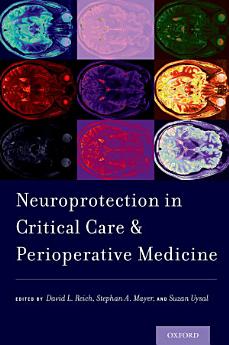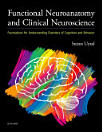Neuroprotection in Critical Care and Perioperative Medicine
David L. Reich · Stephan A. Mayer · Suzan Uysal
Okt 2017 · Oxford University Press
E-Book
304
Seiten
family_home
Zulässig
info
reportBewertungen und Rezensionen werden nicht geprüft Weitere Informationen
Über dieses E-Book
Neuroprotection is becoming an increasingly recognized and important part of critical care and perioperative medicine. As human beings survive increasingly severe life-threatening injuries and complex surgical interventions, it has become clear that neurologic injury and dysfunction is a primary driver of long-term outcome and disability. Neuroprotection is currently under-recognized as the primary objective in promoting recovery from life-threatening injuries, illnesses, and procedures. To address this knowledge gap, Neuroprotection in Critical Care and Perioperative Medicine provides a concise review of the current state of the art of clinical care and research. Within the context of critical care, the specific topics covered will include the primary forms of brain injury on which neuroprotection research and intervention has traditionally focused, such as traumatic brain injury, cardiac arrest, acute ischemic stroke, and intracranial hemorrhage, as well as CNS injuries related to sepsis and acute respiratory distress syndrome, mechanical circulatory support, and premature birth. Within the context of perioperative care, the specific topics covered will include anesthetic and perioperative strategies to reduce brain injury from cardiac surgery, aortic surgery and endovascular repair, carotid endarterectomy, vascular and endovascular neurosurgery, and other major surgical procedures.
Autoren-Profil
David L. Reich, MD, served as the Chair of the Department of Anesthesiology at the Mount Sinai Medical Center from 2004 to 2014, and was named President and COO of The Mount Sinai Hospital in 2013. Dr. Reich's research interests include neurocognitive outcome following thoracic aortic surgery, outcome effects of intraoperative hemodynamics, medical informatics, and hemodynamic monitoring. He has published greater than 130 peer-reviewed articles, 30 invited articles or editorials, and 30 book chapters. He is an associate editor of the text Cardiac Anesthesia and editor of Monitoring in Anesthesia and Perioperative Care. He is co-editor of the first edition of Perioperative Transesophageal Echocardiography. Dr. Reich serves on the editorial board of the Journal of Cardiothoracic and Vascular Anesthesia. He was named the Horace W. Goldsmith Professor of Anesthesiology in 2004 and received the Jacobi Medallion in 2014. Stephan A. Mayer, MD, FCCM, is the William T. Gossett Chair of Neurology for the Henry Ford Health System in Detroit, Michigan. Dr Mayer earned his medical degree from Cornell University Medical College in New York City, and completed a residency in neurology and a fellowship in critical care neurology at the Neurological Institute of New York, Columbia-Presbyterian Medical Center. Dr. Mayer was a founding member and is past-president of the Neurocritical Care Society. His research interests include subarachnoid and intracerebral hemorrhage, acute ischemic stroke, and status epilepticus. Suzan Uysal, PhD, has research interest focus on neurocognitive outcome following surgery. She is also an educator and clinician. She teaches Functional Neuroanatomy and Clinical Neuroscience in the internship and postdoctoral neuropsychology training programs in the Department of Psychiatry and the Department of Rehabilitation Medicine at Mount Sinai. She also teaches a course in Neuropsychology in the New York University Graduate School of Arts and Sciences. Her clinical practice is focused in adult neuropsychological assessment.
Dieses E-Book bewerten
Deine Meinung ist gefragt!
Informationen zum Lesen
Smartphones und Tablets
Nachdem du die Google Play Bücher App für Android und iPad/iPhone installiert hast, wird diese automatisch mit deinem Konto synchronisiert, sodass du auch unterwegs online und offline lesen kannst.
Laptops und Computer
Im Webbrowser auf deinem Computer kannst du dir Hörbucher anhören, die du bei Google Play gekauft hast.
E-Reader und andere Geräte
Wenn du Bücher auf E-Ink-Geräten lesen möchtest, beispielsweise auf einem Kobo eReader, lade eine Datei herunter und übertrage sie auf dein Gerät. Eine ausführliche Anleitung zum Übertragen der Dateien auf unterstützte E-Reader findest du in der Hilfe.





